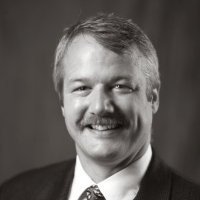Dr. Keith A. Crandall serves as a Professor at George Washington University and is the founding Director of the Computational Biology Institute, where he plays a pivotal role in advancing interdisciplinary research that bridges the gap between life sciences and computational methodologies. With a robust...
Dr. Keith A. Crandall serves as a Professor at George Washington University and is the founding Director of the Computational Biology Institute, where he plays a pivotal role in advancing interdisciplinary research that bridges the gap between life sciences and computational methodologies. With a robust academic background and a prolific publication record of over 200 papers and three influential books, including the seminal work “The Evolution of HIV,” Dr. Crandall has established himself as a leading figure in the fields of phylogenetics, mathematical modeling, and statistical analysis.
In his current role, Dr. Crandall is dedicated to fostering a collaborative environment that connects computational biology research across various campuses at George Washington University. His expertise in DNA analysis, cancer research, and cell biology allows him to lead key projects that explore complex biological questions through innovative computational approaches. By leveraging advanced statistical modeling techniques, he aims to unravel the intricacies of genetic data, contributing to significant advancements in personalized medicine and public health.
Dr. Crandall’s designation as a “Highly Cited” researcher underscores his impact on the scientific community, particularly in the realms of evolutionary biology and bioinformatics. His commitment to education and mentorship has also inspired a new generation of scientists, equipping them with the skills necessary to tackle the challenges of modern biology. As he continues to push the boundaries of computational biology, Dr. Crandall remains at the forefront of research that not only enhances our understanding of life sciences but also addresses pressing global health issues.







